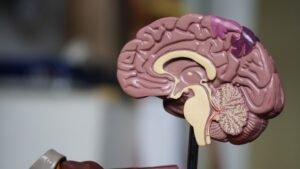A health screening in Singapore can give you a snapshot of your body’s condition. So, the basis for health screening is to check for hidden issues like high cholesterol, early kidney problems or vitamin gaps.
The problem is that there are so many tests on offer and like many people, you might wonder which ones really matter. Also, health screening price in Singapore vary considerably and this can make the whole health screening thing confusing.
But, you want to choose the right test for you to be able to focus on what your body needs, without paying for needless extras. In this guide, we will walk you through the most useful tests for a full-body checkup, how to spot key health needs, and how to measure overall fitness. Let’s begin!
Which Test is Best for a Full-Body Checkup?
When you want a broad view of your health, you may instantly think of a “full-body checkup.” Just as it sounds, this test focuses on core systems like heart, metabolism, kidneys and liver. A standard package for full-body checkup often includes these key tests:
- Complete Blood Count (CBC): This measures your red cells, white cells and platelets. It can reveal anaemia, infections or clotting issues. A low red-cell count may cause fatigue, while high white-cell levels suggest inflammation or infection. Platelet levels show how well your blood clots, which matters before any surgery.
- Lipid Profile: It checks your cholesterol and triglycerides. High “bad” LDL cholesterol increases the risk for heart disease. This test also lets you know HDL (“good”) cholesterol levels. Higher amounts protect your arteries. Reading all four numbers can help you and your doctor plan diet or medication.
- Liver and Kidney Function Tests: These blood tests measure enzymes and waste products. High liver enzymes can signal fatty liver, hepatitis or drug effects. On the same note, high creatinine or urea may be suggestive of kidney stress or reduced filtering ability. If detected early, you may be recommended lifestyle changes or further scans.
- Blood Glucose and HbA1c: A fasting glucose test tells you today’s sugar level. HbA1c shows average levels over three months. They detect early diabetes or pre-diabetes. Based on the results, you may be given tailored advice to help you adjust diet, exercise or treatment.
- Thyroid Function Test: This measures TSH hormone that controls metabolism. Both underactive and overactive thyroid can cause weight changes, fatigue or mood swings. Finding an imbalance can allow you to start simple hormone therapy or diet fixes.
What Tests can I Take to See What my Body Needs?
Beyond a full-body check, you may also want to tune in to specific needs. These can range from vitamin levels, bone health or heart fitness. If you’re looking to discover what your body needs, here are some of the tests your doctor may suggest:
- Vitamin and Mineral Panels: These panels measure vitamins D, B12 and iron, plus minerals like calcium and magnesium. Low vitamin D weakens bones and immunity, while B12 deficiency can cause tingling or memory issues. Iron tests can spot anaemia, which makes you tire easily. You will want to balance these levels to remain active and alert.
- Bone Mineral Density (BMD) Scan: This is a painless scan which uses low-dose X-rays to measure bone strength. It can help detect osteoporosis before fractures occur. If you have a family history of brittle bones or enter menopause, you should ask for this test. You may be recommended early treatment with supplements or exercise to slow bone loss.
- Hormone Panels: For women, oestrogen and progesterone tests help with menstrual issues or menopause symptoms. For men, testosterone levels guide treatment for low energy or libido. Imbalanced hormones can affect mood, weight and sleep. A tailored plan may include lifestyle tweaks or simple medication.
- Cardiac Stress Test: This test measures how your heart handles exercise. It basically involves walking on a treadmill while technicians monitor your heart rate and blood pressure. It can help spot hidden heart problems that rest-only tests might miss. Active people or those with family heart history benefit most.
How do I Check if my Body is Healthy?
A good health screening in Singapore goes beyond tests. To know if your body is healthy, you will want to look at three pillars: numbers, function and feelings.
To begin with, your test results provide objective data. Compare your blood pressure to the ideal range (below 120/80 mmHg).
You will also want to check your cholesterol—total under 200 mg/dL is good, and LDL under 100 mg/dL reduces heart risk. Glucose fasting levels under 100 mg/dL mean normal sugar control.
If any number strays, you and your doctor can spot trends over time and adjust your plan. The other way to check if your body is healthy is by assessing physical function.
Ask yourself: can I climb stairs without getting out of breath? Do I lift groceries or carry my child without pain?
Simple strength and flexibility tests (like a timed sit‐to‐stand test or reach test) at home can give clues to muscle and joint health. If you struggle, your screening results can explain why and guide exercise or therapy.
Importantly, note how you feel day to day. Energy levels, mood, sleep quality and digestion all matter.
If you wake rested and tackle tasks with steady energy, your body likely runs smoothly. Persistent fatigue, brain fog or digestive upset may suggest areas to check with tests like thyroid panels or gut health checks.
What Test to do to Check Physical Health?
To begin with, physical health covers your heart, lungs, muscles and bones. To check your physical health check, you may be recommended a resting ECG, lung function test, body composition analysis or blood pressure and heart rate check.
A resting ECG records your heart’s electrical signals while you lie still. It can detect rhythm issues, past silent heart attacks or early signs of heart disease.
Results typically take minutes and cause no discomfort. A lung function test measures how much air you breathe in and out, and how fast.
It uses a mouthpiece and a big machine called a spirometer. You can benefit most from this test if you’re a smoker, have asthma or if you’re exposed to dust becaue it catches early lung changes.
A body composition analysis uses bioelectrical impedance to measure fat, muscle and water percentages. It shows if you carry excess fat around your belly or have too little muscle mass.
This data can help your doctor or trainer build a balanced fitness plan just for you. A blood pressure and heart rate check reveals stress on your arteries and how well your heart pumps.
Wrapping Up
A health screening in Singapore should match your goals. Whether you seek a full-body overview or want to target specific needs, it should match the goals. Just be keen to pick the right tests if you’re keen on gaining clear data on your blood, organs, fitness and wellness.
We provide tailored health screening in Singapore. If you have been recommended an assessment or just want to know your health profile, get in touch with us now to schedule an appointment. Call or visit us at;
Ardennes Health – One-Stop Health Screening and Radiology Centre in Singapore
60 Paya Lebar Rd, #02-01/04, Singapore 409051
Phone: +65 6980 3045




